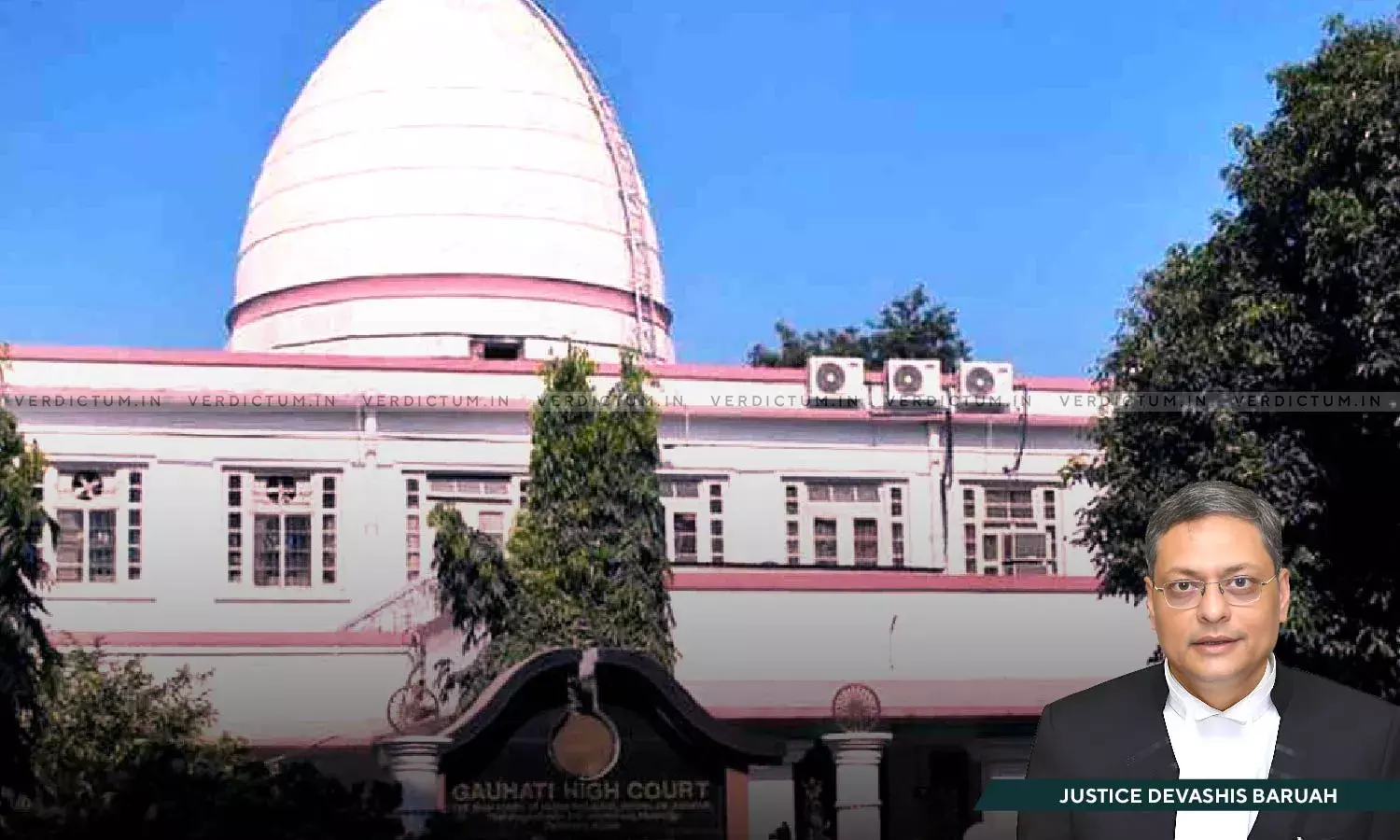'Fundamental Right To Live With Dignity': Gauhati HC Directs State To Provide Medical & Financial Assistance To Child Suffering From Rare Vaccination Complication

The Gauhati High Court directed the State to extend both medical and financial assistance to a child grappling with a rare complication arising after a vaccination was administered to her.
The Court disposed of a Writ Petition filed by the Father of a Child suffering from Acute Disseminated Encephalomyelitis (ADEM).
The Court emphasized the child's fundamental right to a dignified life, especially given her Father’s low-income status as a vegetable vendor.
The Bench of Justice Devashis Baruah observed, “It is well established that right to life also includes a right to live with human dignity. This Court also takes note of that the Petitioner is a vegetable vendor and earns a meager income and taking into account the requirements as per the report for the child of the Petitioner to live a life with dignity, it would not be possible to do so without the aid of the State Government”.
Advocate R. S. Choudhury appeared for the Petitioner and Standing Counsel B. Gogoi appeared for the State.
A Writ Petition was filed before the High Court regarding a case where the daughter of the Petitioner suffered a rare complication diagnosed as Acute Disseminated Encephalomyelitis (ADEM) after receiving a vaccination. The child's health deteriorated, leading to permanent disability. The Petitioner, facing financial challenges, sought compensation from the Mission Director, National Health Mission (NHM) responsible for the vaccination. However, no steps were taken by the concerned authorities. Aggrieved, the Petitioner approached the High Court.
The Court observed that the relief hinged on establishing negligence. The Court, considering the prolonged pendency of the petition and the potential hardships for the Petitioner in civil courts, decided not to relegate the matter. The Court, through an order, appointed a commission to investigate the alleged medical negligence.
The Court framed the following issue: “(A) Whether on the facts of the present case, the permanent disability of the child of the petitioner could have been prevented by the Respondent Health Department?
(B) Whether there was medical negligence on the part of the Respondent Health Department which led to the permanent disability of the child of the petitioner?
(C) What medical remedial steps are required to be taken for the child of the petitioner to live a life with dignity?”
The Bench took note of the Commission's Report, noting that the child had received an appropriate vaccine, and immediate post-vaccination symptoms were adequately treated. The diagnosis of ADEM and its treatment at GMCH followed established guidelines. ADEM considered a rare complication post-vaccination, has an incidence ratio of 0.8 per lakh vaccinated children.
The Bench noted the report that the treating team minimized the damage caused by ADEM, and there was no negligence by the Health Department leading to the child's permanent disability. The child's current disabilities include compromised vision, severe imbalance affecting mobility, bilateral foot drop and right wrist drop, unclear speech, and an inability to perform basic daily tasks without assistance.
The Bench noted the Commission members' opinion that due to multiple severe disabilities, the child cannot lead an independent life in the future and will require constant assistance from a caretaker. The child would also need support from an ORTHOTIC device to achieve some degree of independent walking abilities. The Commission mentioned that, according to a Korean study, the typical lifespan for a person with severe disabilities is approximately 50 years.
Therefore, based on the report, the Court held that there was no negligence on the part of the Respondent Health Department in administering the vaccine and providing treatment. The Bench noted that the State Authorities have not approached the litigation adversarially. Instead, they have actively facilitated the Petitioner in accessing necessary medical assistance.
The Court noted that the Social Welfare Department has also expressed its commitment to providing possible assistance for the child's life with human dignity. The Court noted its lack of expertise in understanding the medical and intricate welfare needs of the Petitioner's child and emphasized that experts in medical fields and humanities are better suited for such assessments.
Therefore, the Court issued directives for the well-being of the Petitioner's daughter, including a monthly stipend until she turns 18, deposited in her bank account, aligned with minimum wages. An additional Rs.3,700 monthly for a caretaker until she reaches 18. Immediate disbursement of Rs.1,00,000 within 30 days, with subsequent monthly stipends and caretaker costs disbursed within 6 months. Mandatory Regular medical evaluations by specialists, ongoing treatment, orthotic supports, free services, and assistance from the Social Welfare Department.
Accordingly, the Court disposed of the Writ Petition.
Cause Title: Binoy Deka v The State Of Assam And 2 Ors (GAHC010184202014)

